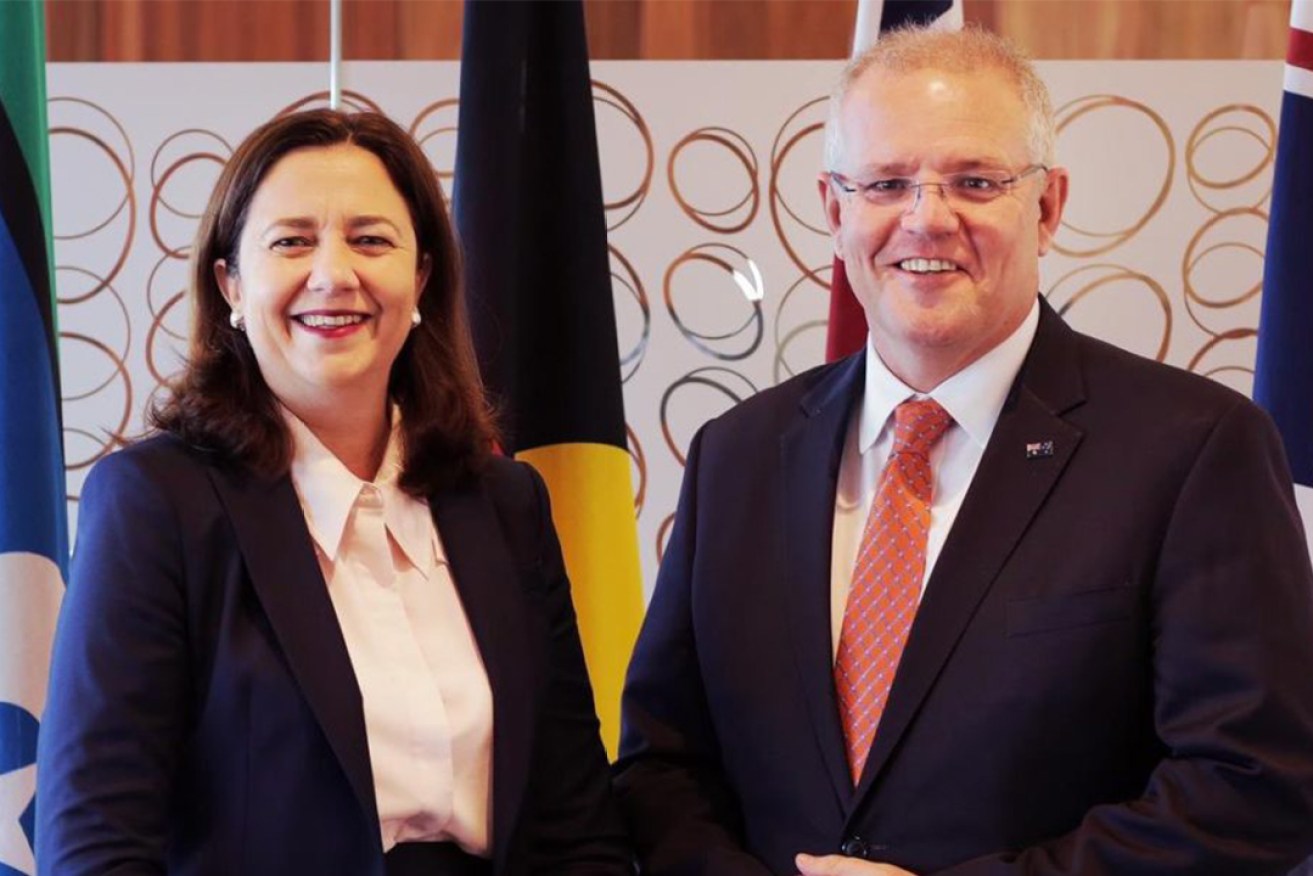A shotgun marriage for now, but how long can federal and state bodies keep the peace?
The pandemic has shown the Commonwealth and the states can work together for the common good. But two recent reports show just how hard it is to keep both levels of government on the same page, writes Robert MacDonald


The Commonwealth and state governments have worked together during the pandemic, but how long can the spirit last? (Photo: AAP)
We’ve seen unprecedented cooperation between the Commonwealth and the states during the past six months of the COVID-19 pandemic.
But the looming question is how long can this collegiate approach to solving the nation’s problems – both immediate and long-term – continue, once the crisis has ended?
State and federal bureaucrats don’t always see eye to eye.
Federal public servants often think they have a bigger view of the world while their provincial counterparts believe they know far more about how that world really operates.
I speak from experience. I’ve worked at both levels of public administration and have had to adjust my loyalties accordingly.
When I worked at Austrade, we had the national interest to look after. When I worked at Trade and Investment Queensland, our responsibility was the specialty food producer from Bundaberg, or Kingaroy, or wherever.
Two recent reports highlight just how hard it is to produce enduring and effective ways of dealing with issues that have both state and national significance.
Two weeks ago, former Australian Competition and Consumer Commission boss Graeme Samuel released an interim report on his independent review of the Environment Protection and Biodiversity Conservation (EPBC) Act.
It was damning.
“The EPBC Act is ineffective. It does not enable the Commonwealth to protect and conserve environmental matters that are important for the nation. It is not fit to address current or future environmental challenges,” the report says.
The Act was created 20 years ago to clarify the Commonwealth’s authority to intervene in state-level environmental decisions.
Implicit in the thinking at the time was the idea that you just couldn’t trust the states to do the right thing when it came to big environment-versus-development matters.
Those arguing for greater Commonwealth involvement cited such examples as the proposals to mine Fraser Island, drill for oil on the Great Barrier Reef or dam the Franklin River – all stopped after federal intervention.
Assistant Treasurer Senator Rod Kemp’s second reading speech in support of the bill in November 1998 captured nicely the Commonwealth’s view of the world.
The new act, he said, would provide “a truly national scheme of environmental protection” by “respecting and building upon the strengths of our federation and the primary responsibility of the states for delivering on-ground natural resource management.”
“By accepting Commonwealth leadership, respecting the role of the states and providing best process for users, the bill provides a framework within which to build public confidence and support for its vitally important objectives.”
In other words, while the states might be doing the hard work of delivery, the Commonwealth would be providing the brains.
It hasn’t worked out this way according to Samuel’s report.
Not only has the act resulted in duplication with state and territory environment laws but also “the Commonwealth process for assessing and approving developments is slow, complex to navigate and costly for business”.
And, argues Samuel, “slow and cumbersome regulation results in significant additional costs for business, with little appreciable benefit for the environment.”
In short, an act developed 20 years ago, in part to rein in the potentially brutish behaviour of the states by giving the high-minded Commonwealth more power to intervene, hasn’t delivered.
Samuel recommends handing much of the process back to the states while also creating an overarching agency to police formally developed national environmental standards.
The review’s final report isn’t due until late this year but already, environmental groups are outraged at the thought of returning decision-making power to the (presumably still brutish) states.
On Thursday last week, the Australian Consumer and Competition Commission released the second recent report highlighting the challenges of joint federal-state management of big issues – in this case, Murray-Darling water rights.
“The Basin’s water rights markets have serious problems that have to be fixed now, to generate more of the potential benefits of water trade,” the ACCC says in its interim report from its Federal Government-ordered inquiry into markets for tradeable water rights in the Murray-Darling Basin.
“In the ACCC’s observation, the current markets’ rules are deficient; enforcement of them is inconsistent and limited; and the overall governance of the Basin’s water trade is troubled.”
This is despite years of efforts by the Commonwealth and the states with interests in the Murray-Darling Basin to try to work together.
The ACCC suggests several possible solutions, among them, a new independent regulator.
But again, we’ll have to wait for the Federal Government’s response to the ACCC’s final report, due in November before we find out what happens next.
In the meantime, the continuing success of the COVID-19 coalition shows that the states and the Commonwealth can work together when the matter is literally life or death.
But the goodwill so essential for such a process to work can easily evaporate, particularly if raw politics and looming state elections get in the way of thinking collegiately.












